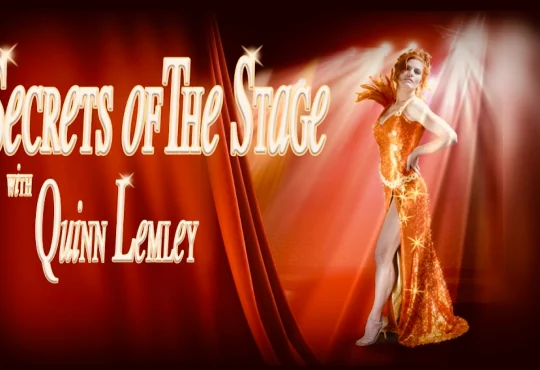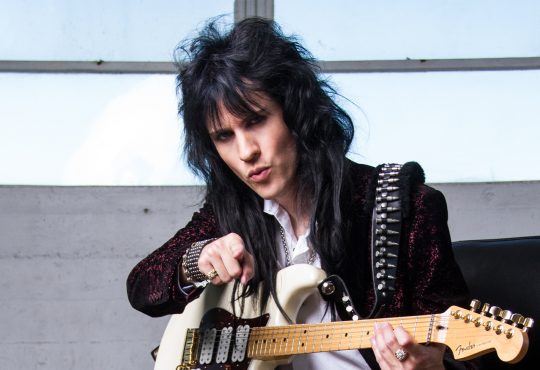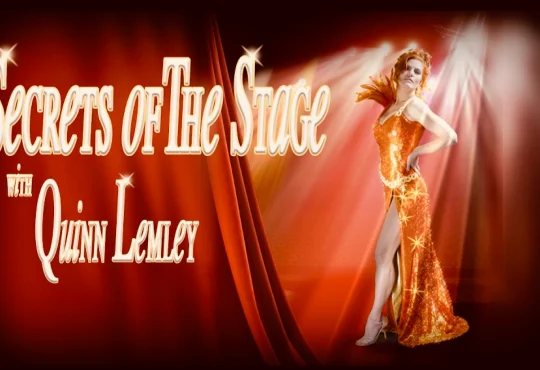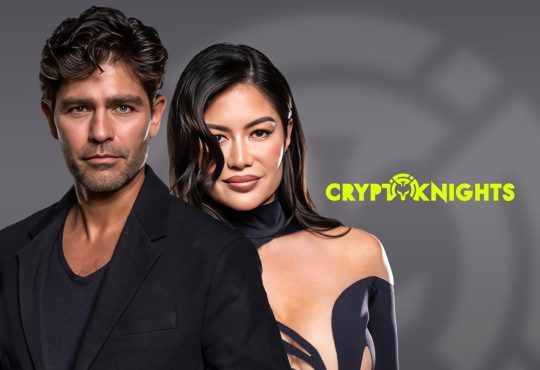Issa Rae Can’t Stop, Won’t Stop
Hours before the dawn even considers cracking, Issa Rae is awake. The weekday routine is as follows: At 4:20 a.m., she sets out on an hourlong walk, alternating between two routes. With AirPods in and podcasts playing, Rae whips down quiet Los Angeles roads lit only by streetlamps, sometimes passing by a house she grew up in, before beginning her day. This is how Rae keeps her sanity, though when we meet on a Tuesday in early March, she confesses the regimen has been upended.
“I hadn’t done my walking since January,” Rae says over a matte-black bottle of prosecco she’s poured out for us by her pool. Her unassuming house sits on a suburban street in L.A.’s View Park neighborhood, its well-manicured lawn fitting in neatly with the rest. She’s set a giant, colorful arrangement of flowers on the table. “During filming, all routine goes out the window, which sucks.”
Rae thrives off routine — but the only thing she’s more devoted to is work. Her morning outings halted when she headed back to set to start filming the fifth and final season of her breakout HBO series, Insecure. At the moment Covid derailed everyone’s lives, Rae was coming off promoting the romantic drama The Photograph and preparing to premiere her action-packed rom-com with Kumail Nanjiani, The Lovebirds, at SXSW. Grounded at home, she began planning Insecure’s conclusion last May. She also created a new show, Rap Sh*t, about two female rappers in Miami.
To call Rae one of the busiest people in entertainment is not a stretch. There’s always something brewing in the 36-year-old multihyphenate’s pot, sometimes literally: In 2019, she became co-owner of a new Hilltop coffee shop in Inglewood (another followed in Eagle Rock). She has a hair-care company, Sienna Naturals. Campaigns with Madewell, LinkedIn, and American Express. And, of course, there’s the crown jewel, Hoorae, her production company overseeing all of the film, television, music, and events that Rae has in the works. She estimates that she has around 22 movies and shows currently in development. Sixteen alone are for HBO and HBO Max, whose parent company, WarnerMedia, recently locked a five-year deal with Rae for a whopping nine figures, according to a source familiar with the agreement.
“I’m just always thinking about work,” Rae says, her tone sober. She was striving for more balance a few years ago, but now the workload has reached its heaviest. Rae is starting to believe she may just be built this way. “I was always like this. [In the past] it was like, ‘I need to work to make sure I have the means of affording a place to live.’ [Or] ‘This didn’t work, what’s the next thing I can do?’ I think that’s just how my mind works. That’s Capricorn shit. Workaholic shit.”
It’s a condition she’s still battling. (“If you have any suggestions, let me know,” she says to the half-vaccinated journalist who flew across the country to meet her.) Outside the hit shows, movies, and glamorous photo shoots, Rae keeps her life aggressively normal. She has an office she reports to when she’s not filming and a cabal of lifelong friends — though the pandemic revealed room for improvement there. Deprived of seeing her friends in person, she slacked on communication, and felt those relationships suffered. “I’ve fallen short because I’m so used to [them] accommodating this in-person dynamic,” she says. “So this year has tested who I am as a friend and really made me realize, ‘Oh, I’m not considerate in this way, and I can do more here.’ ”
Add it to Rae’s list of goals. She seems to have a lot on her mind these days, including that she has plenty more to prove to the entertainment industry. “I feel like I have a cute story, but I want to be more than that,” she says, referring to being discovered through her self-produced YouTube series The Misadventures of Awkward Black Girl. “I want to belong here. I want to be among the greats.” Names that “roll off your tongue” are Rae’s greatness barometer: Denzel Washington, Cicely Tyson, Oprah. Ceiling-shattering icons who have been the blueprint for Rae her entire life. “I have to work to do that,” she continues. “It’s not enough to start things. These businesses and all these things that I’m touching still have to be great. Anybody can do this, but can they do it well? What I’m trying to prove is that I can do it well.”

Issa Rae, photographed in Los Angeles on March 14th, 2021.
Photograph by Dana Scruggs for Rolling Stone. Production: By Association. Hair by Nicky B. Makeup by Joanna Simkin at the Wall Group. Styling by Jason Rembert. Manicure by Eri Ishizu using Chanel Le Vernis. Bodysuit by Vex. Jewelry by Pamela Love.
Jo-Issa Rae Diop was born to a Senegalese father and Louisiana-native mother who met while they were students in France. The Diops raised five children together — Rae landed right in the middle — moving the family around as the kids grew up, from Los Angeles to Senegal to Potomac, Maryland. When Rae was 11, they settled back in L.A.
In school, Rae excelled, and enjoyed the positive attention that brought. “She was very smart. She got things very quickly,” says one of Rae’s best friends, Devin Walker. They met in 1999, during their freshman year of high school. “I went to her for help in class, especially with math and science.”
Back in Potomac, Rae had been one of the only black students in her class. So when she returned to L.A., where she was surrounded by more black and brown kids, she felt the growing pains of catching up on all the things her peers loved. In her 2016 collection of essays, titled after her YouTube show, she detailed her stumbles in trying to fit in: not knowing who Tupac was when he died, regrettably inflating her dancing skills before a party, the boundless pitfalls of adolescent dating in both America and Senegal. It’s the essence of her “awkward” persona, the in-between-ness of not feeling as definable as the people around you want to be. It’s a title Rae still wears with pride, though Walker says it doesn’t quite fit.
“I tell her she’s not awkward, but I think she still sees herself that way, because it’s just life,” Walker says. “Awkward conversations, awkward interactions. [Times when] you don’t want to stay but you linger because you don’t want to be rude. She has a tendency to do these things, so that’s stuck with her. But I still see her as being so cool.”
“There’s no way she thought I was cool,” Rae contests a few days later. After her Tupac debacle in the sixth grade, Rae vowed never to be behind her classmates again. She became obsessed with artists like Mýa, Pharrell, and Ma$e, and dove into black music of the Sixties and Seventies. She loved television, too, and the Nineties were an especially rich time for a young black viewer. It was a golden age of sitcoms that showed black people in a way they had often been denied: relatable. Shows like A Different World, Living Single, Moesha, and The Fresh Prince of Bel-Air defined Rae’s childhood and sparked her own desire to create cultural mirrors.
In 1996, at age 11, Rae wrote her first spec script, for Bill Cosby and Phylicia Rashad’s new sitcom, Cosby, which she sent to CBS with her grandma’s encouragement. Not long after, she wrote a pilot for an original show called Ronnie that she mailed off to NBC, “a high school dramedy about gang violence” that she compares in her book to the short-lived series South Central.
“I got those rejection letters fairly quickly,” she says with a laugh. She stopped writing to pursue drama in high school, but when she saw the 2000 romance Love & Basketball, everything changed. The first script she wrote after watching Gina Prince-Bythewood’s debut film was submitted as part of her application to an ABC writers program.
“My mom drove me because I missed the postmark deadline,” Rae recalls. “I put the little envelope under the door and then I got feedback a couple months later.” The response wasn’t what she wanted. “[It] was basically like, ‘This is laced with profanity,’” she says, laughing harder now. “Like, it’s ABC! What was I thinking?” (She would just have to wait 15 or so years to get all the curse words she wanted into her scripts for HBO.)
Even though Rae spent her time writing and performing plays in high school, it wasn’t entirely clear to anyone, even her, that Hollywood would be her future. Her pediatrician father and teacher mother wanted her to pursue a more stable profession, like doctor or lawyer. And given how well Rae performed in school and onstage, it seemed that she could take any path she chose. But she got a reality check when she arrived at Stanford in 2003.
“I was like, ‘Oh, I’m not as good at calculus as I thought I was,’” Rae says. That’s when she leaned into theater. “For me, I found success in creating plays for black people, directing and adapting them. I don’t even remember much about my grades. They were OK, but it was just really about creating a community and discovering my love for the arts.”

Issa Rae, photographed in Los Angeles on March 14th, 2021.
Photograph by Dana Scruggs for Rolling Stone. Top by Monot. Jewelry by Monbouquette.
While at Stanford, Rae also created the web series Dorm Diaries, her foray into the self-starter world of YouTube. She relocated to New York after college for a fellowship at the Public Theater, working low-paying jobs to support herself. It was a rough transition into the real world. “I was struggling in New York [and] broke as hell,” she says bluntly.
Two friends who were pursuing their own entry-level opportunities in entertainment persuaded Rae to come back West, where she had connections and could save money living at home. She returned to making scripted content for YouTube, and eventually started writing Awkward Black Girl, with production help from a former Stanford classmate named Tracy Oliver (who would go on to write the blockbuster comedies Girls Trip and Little). The main character, J, was the prototype for Insecure’s Issa Dee: a socially awkward and uncertain young woman navigating uncomfortable workplace dynamics and romantic mishaps.
The show became a viral sensation. When Rae and Oliver needed to raise money to produce the rest of ABG’s first season, nearly 2,000 fans donated to their Kickstarter, almost doubling Rae and Oliver’s original goal of $30,000. By Season Two, Rae had the assistance of Pharrell, who funded the new episodes and premiered them on his iamOTHER YouTube channel. And from there, she was thrust into the entertainment world with little netting. ABG provided a wealth of opportunities, including an unaired 2013 pilot called I Hate L.A. Dudes, produced by Shonda Rhimes. That ended up being an important lesson.
“I was so focused on what I felt like fit their network that I didn’t focus on the story I wanted to tell,” Rae has said. “I was eager to please, and that made my voice kind of irrelevant, and the reason they brought me in in the first place was to have something to say. I had to realize I have a specific point of view, I have a specific story to tell, and I need to tap into that.”
As L.A. Dudes fell through, Rae teamed up with Larry Wilmore, then still a Daily Show correspondent, who became a mentor and a partner in developing Insecure (which was originally titled Non-Prophet). “I’ve learned so much from him,” Rae says. “This industry is built on exclusion. Knowing people is such a currency, and if you don’t know anybody, you’re just left to fend for yourself.”
Cute as Rae’s professional story may be, she fiercely protects what we can’t see onscreen. She regrets laying out so much of her personal life in her book, which she wrote not expecting that so many people would read it.
“It felt like I was writing journal entries,” she explains. Everything from her experience catfishing random men in chat rooms as a preteen to her discovery of the affair (her dad’s) that led to her parents’ divorce was part of her story. “The 24- through 27-year-old version of me will live on through a book. My opinions, whatever whimsical thoughts and notions, will live on forever. That’s what I don’t like about it,” she says. “In writing a new book, I would focus on less of my personal life. My family didn’t ask for that. My aunt opening that book was like, ‘What the fuck, girl? I was trying to read and support my niece and I’m in this.’”
Rae is much more cautious now, especially around her quiet engagement to businessman Louis Diame. Her only acknowledgment of the news was a 2019 Essence cover photo that revealed her ring; it was confirmed by her less-private co-stars. A man I assume is Diame (Rae doesn’t introduce us) appears briefly at the couple’s home the first day we meet; masked in the presence of a rare pandemic house guest, he waves hello and shows off his “We Need Journalists” hoodie before disappearing. Later that week, when I join Rae for her early-morning stroll, he stays on the opposite side of the street, keeping the pace and minding his business.
“I just feel superprotective of any relationship I’m in,” Rae says. “That’s come from observing and making fun of people over the years who broadcast the most intimate parts of their relationships, then are left with egg on their face. I call them the ‘me and my boo’ people. Let me embarrass myself. Don’t let a nigga embarrass you. That’s always been my focus.”

Issa Rae, photographed in Los Angeles on March 14th, 2021.
Photograph by Dana Scruggs for Rolling Stone. Dress by Monot. Earrings by Lady Grey.
Of course she works some of the key people in her life into her show. Issa Dee’s best friend Molly (played by Yvonne Orji) is based on one of Rae’s real-life best friends — though Rae is quick to note that she and the writers have “taken liberties” with her story. Last season, after a falling-out and ongoing tension between Molly and Issa, “she was like, ‘Bitch, do we have problems? Because everybody coming for Molly, which means they’re coming for me,’” Rae says. “I’m like, ‘This is not even you anymore, so why are you upset?’”
Sometimes she writes something that accidentally dovetails with her friends’ lives, and has to reassure them that it was all a coincidence. (She fields a lot of “Was this about me?!” calls.) They’re her inspirations, but she would never use them for the sake of her art. “Those friendships mean everything to me,” Rae says. “That’s my support system.”
Rae is also a product of the internet and understands that it can break her down as quickly as it built her up: “I know how I am as a consumer, as a stan of people, and what I look for. I had the foresight to shield myself from what anybody who was looking for anything on me would try to find, because I know this culture. Internet culture is weird and malicious. I’ve just worked really hard to protect myself from the ugliest parts of it.”
Rae’s guarded nature seems less about the public eye, though, and more just how she functions. Her brother joked on a red carpet about how she hadn’t told him she was engaged for a few days. Her work colleagues complain to her that she’s slow to divulge information. Even in her group chat with friends, Rae can be withholding. “We never know how much she has going on, because she’s not a super-sharer,” Walker notes.
Rae is especially reluctant to talk work problems with her friends. But that doesn’t make those problems any less taxing. One day when I reach her by phone, Insecure filming is stalled because of a set issue. Rae had griped briefly in an Instagram story the night before, writing, “Every time I catch up, I’m behind.” She’s still frustrated when we talk: “In writing it, we knew what it was and where it was supposed to be. So what happened? Was I not paying attention? Did I not articulate this enough? I can only blame me.”
Sleep helps her manage speed bumps like that. And she can lean on Diame. But the group chat is sacred. “We all have work situations, [like] the white bitch at my friend’s job who constantly tries him. There’s some things on a basic human-frustration level I can vent, but industry things? I don’t know. No one wants to hear your shit.” She’s still hunting for the right therapist.
As Manhattan is to Sex and the City, Los Angeles may very well be one of the stars of Insecure. The show feels like a love letter, as the fictional Issa navigates workplace, friendship, and romantic woes through weekend getaways to Malibu Airbnb’s or Ethiopian meals at Merkato. The Dunes, a real apartment complex where Issa and Lawrence (played by Jay Ellis) lived during their troubled relationship, has become a tourist hot spot in Inglewood. But as Rae has been penning her tribute to Los Angeles, she’s watched the city change in real time. Early seasons make her nostalgic for the L.A. of just six years ago. Iconic nightclub Maverick’s Flat, where Issa Dee famously performed the song “Broken Pussy” at an open mic in the series premiere, shut down in 2016. Less than a 10-minute drive from the Dunes is the massive new SoFi Stadium, which opened for its first NFL season last fall. Rae used to worry about the show feeling dated; now she views it as a cherished “time capsule.”
“Even in the B-roll that we get, I want to be able to look back and be like, ‘Aw, man. Remember when Inglewood used to be black?’” (Appropriately, construction sounds from someone she calls the “gentrification neighbor” float over her fence as we chat.) As the show has progressed, fictional Issa’s search for purpose leads her to quit her job at a nonprofit to become an event planner, with hopes of elevating the south L.A. community she adores. Much of real Issa’s motivation is the same. The home base for Hoorae is nestled in Hyde Park, not far from where she opened Hilltop Coffee. There’s an events division that hasn’t been fully realized yet, but Rae hopes that it will facilitate live performances. She plans to have a soundstage built on site for shows that will highlight local artists.
The entrance to Hoorae’s cozy space features posters from past seasons of Insecure and Rae’s movies. On the second floor, where Rae’s personal office sits, there’s a giant painting of the late rapper Nipsey Hussle, who was shot and killed two years ago. Rae and Hussle grew up in the same community, and he spent much of his life working to preserve and uplift south Los Angeles.
“Watching so much of [Los Angeles] change and people be disregarded … Leimert Park is fighting so hard to stay black-owned. Those things really affect me,” she says. While Issa Dee’s journey is shaped by “working in these white spaces and watching white people dictate what’s best for black people,” as Rae puts it, the character has had an inverse effect on her. “[She’s] rubbing off on me.”
One Thursday afternoon, Rae is tied to her desk for back-to-back video meetings. With the prop and costume designers, she oversees the staging of Episode Seven of the coming season of Insecure. They discuss the vibe one character’s playlist should have as it bops in the background (Salt-N-Pepa) and how to be environmentally friendly with the paper props needed for a party game. An hour later, she meets with some of the team behind Rap Sh*t, her upcoming series about two childhood best friends who reunite to chase rap stardom. Though it’s set in a world she’s less familiar with — loosely based on Miami duo the City Girls, who have signed on as executive producers — there’s still some activism at its core. Rae was moved in part by female rappers like Megan Thee Stallion and Cardi B, whose rise through social media and reality TV fascinates her. But she also got fired up about Jermaine Dupri “coming out and criticizing female rappers for only talking about their pussy,” she says, referring to the producer’s comments on the success of songs like “WAP.” “I was just like, ‘This is so unfair.’ So that inspired the writing of it.”
Rae has been similarly aghast dealing with the recording industry over the past year. She launched Raedio, the audio arm of Hoorae, in 2019. It functions partly as a boutique label under Atlantic, with signed artists including Yung Baby Tate and TeaMarrr. Asked what’s surprised her most about the music business so far, Rae ticks off grievances. “The conflicts of interest. The perpetuation of specific images, especially when it comes to black women,” she says. She doesn’t understand how people can both work at labels and manage artists on the side, and questions the more “manufactured” elements of those who rise to the top.
“I guess I feel more empowered in the film and television industry,” she says. “We have our own problems, but it is nothing like the music industry. I’m in awe every single day of just, ‘Y’all can do this? This can happen, and it’s still going to happen?’ I have a lot of catching up to do. That feels exhausting in a different way.”
But it’s nothing compared with figuring out how to end the show that changed her life. Rae read a version of the script for Insecure’s finale the night before our early-morning walk, but it took another few weeks for her to have a breakthrough. While she won’t give any spoilers, there’s one thing we know for sure about Season Five: The pandemic won’t be casting its shadow. “We’re not telling a Covid story,” Rae says. “I had fatigue.” Instead, she and the rest of the cast have gotten to live in the L.A. she misses, full of parties and dining in restaurants. “A fantasy world,” Rae calls it. Issa Dee is still an event planner, and they weren’t going to sacrifice the journey she had been on for years.
Rae’s own journey is now the stuff of legend. Back in December 2013, she and her just-established team made vision boards, an act of manifestation via collage. At the time, Rae’s career was gaining momentum. A few months prior, she and Wilmore had been tapped to write a comedy pilot for HBO, which would become Insecure.
The board is divided into three sections: work, personal, and miscellaneous. It was stowed away until Rae moved into her current home two years ago, where it now sits in her office. It may be the strongest case for running to the nearest craft store for poster board and glue sticks: Dream goals of working with HBO and Netflix, getting nominated for a Golden Globe, being on the cover of a magazine, and owning a home have all been met. When Rae shared it on Instagram this past December, she ticked off each one with an enthusiastic “Did that!” More than seven years later, she’s ready to make another.
“[That one] was a ‘Huh, maybe one day.’ Now I want to be more intentional about it,” Rae says. “See what else I genuinely want to accomplish, and what I can do.”






